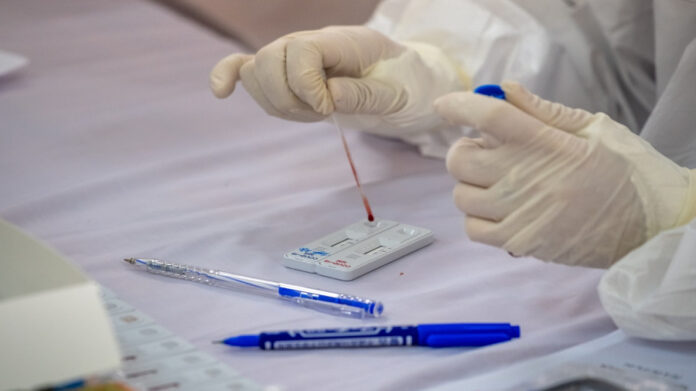As paradoxical as it may seem, the current number of vaccines available on September 7, i.e. 6,257,749, exceeds the number of registered in the Evax platform: 5,973,687. This is why, to vaccinate the most people, the Ministry of Health has decided to open vaccination to all people, over 12 years of age, whether or not they are registered in the Evax platform.
According to statistics published by the ministry on its Facebook page, out of 95,214 people summoned yesterday Tuesday to receive the first or second dose of the coronavirus vaccine, only 31,278 responded present. That’s less than 30%.
While only 20,129 out of 76,642 summoned to receive the first dose, responded present.
In total and since the start of the national campaign last March and until September 7, 2021, 6,257,492 people have received, either a single dose (4,404,156) or two doses (1,853,336). Another 320,092 have taken a single dose of the Johnson & Johnson vaccine and 368,034 who have already contracted Covid-19 have received a single dose.
Doubt and rumors
However, the vaccination campaign against Covid-19 is in full swing and has accelerated sharply in recent weeks, following the receipt of several million doses of vaccines, more than 11 million, according to the president of the vaccination committee Hechemi Louzir, from brotherly and friendly countries, and thanks to the mobilization of all the human resources and all the necessary logistics, the Ministry of Health and the National Army.
But the pace of vaccination continues to slow down, while we have already exceeded the rate of 50% of the total population, having received at least one dose. Moreover, according to the World Health Organization (WHO), Tunisia is in the list of African countries that have been able to achieve the global goal of vaccination against Covid-19. It is part of a group of 10 countries including Seychelles, Cape Verde, South Africa and Morocco, which have been able to reach the global target of vaccinating 10% of the most vulnerable groups against Covid-19 by the end of September, according to data collected by the WHO and published on the United Nations website (UN Info).
This reluctance is explained by the mistrust of a number of vaccines, considered unsafe and ineffective. A doubt exacerbated by rumors peddled on social networks. It would also be inherent in references to popular and even religious culture. We should add the many failures of the Evax platform and the absence of the Internet in the most remote areas of the country, in addition to the low speed that gives a hard time to the agents of the vaccination.
But, to tell the truth, this reluctance or rather this mistrust of the vaccine, is not a Tunisian exception. In Western Europe, for example, confidence in vaccines does not even reach 60%. It is even stronger in Africa and Asia, with 92% and 95% respectively.
What to do then?
The puzzle for the authorities is no longer how and where to find vaccines, but rather how to get the most people vaccinated. Is it possible to make vaccination compulsory? To this question Dr. Jalila Ben Khélil, the spokeswoman of the national vaccination committee, replies “that we should study this well, at all levels”.
However, she believes that “it would be wise to target certain socio-professional categories that are in regular contact with people such as health personnel and teachers. On the other hand, the health pass could, according to her, “the solution to push to be vaccinated. It will be for people at risk, aged 40 and over.”
“It has been agreed, in fact, within the scientific committee, to take this decision that will oblige citizens to present the vaccination certificate to access public spaces,” she stressed, adding that “it will be applied gradually in public institutions and institutions, clinics and banks.”
She explained that “the obligation to present the vaccination certificate is intended to control the transmission of the virus and that this procedure will be applied gradually according to the age groups, starting with people aged 40 and over and then the youngest”.
Meanwhile, mobile public health and military health teams are crisscrossing the country to go deep into the country to vaccinate people there.
Rifi-JDD








